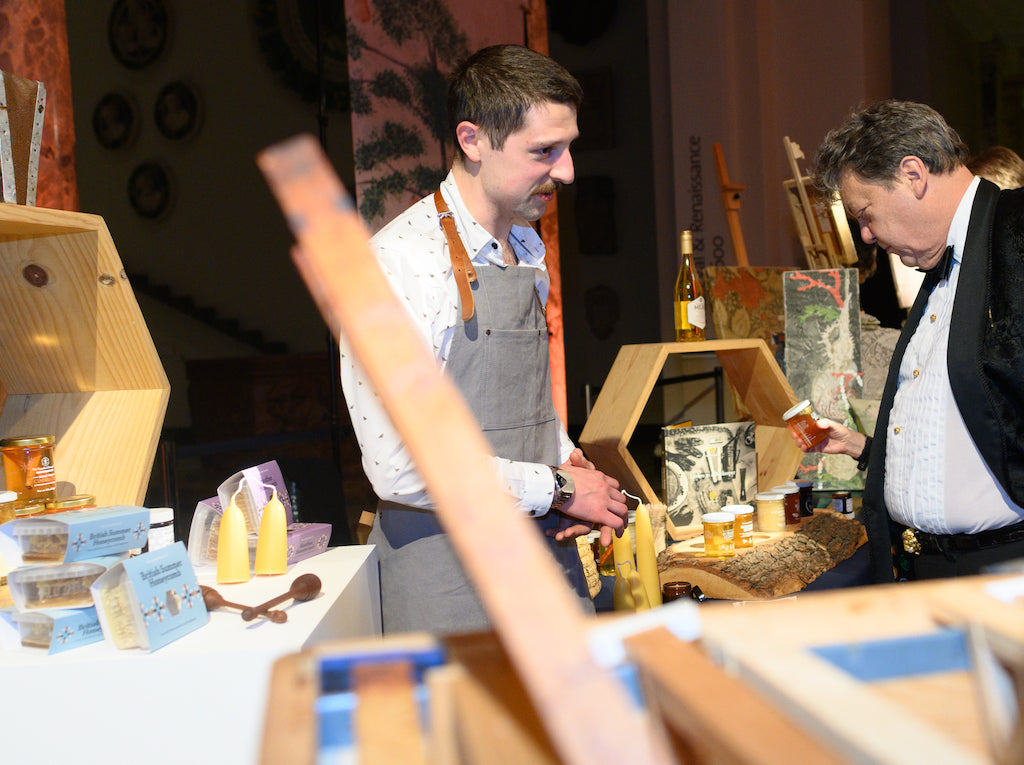
Our Apprentice Beekeeper Jack on Why He Became A Beekeeper
Jack Silberrad, Apprentice Bee Farmer at the London Honey Company, shares what drew him to beekeeping and how you can support bees, without even becoming a beekeeper.
 After University, where I studied microbiology, I was working in a graduate sales role for a medical equipment company, it left me feeling melancholy. I wanted work which engaged my mind and my body, that I felt at peace with, work which when I looked back on I would feel proud of.
After University, where I studied microbiology, I was working in a graduate sales role for a medical equipment company, it left me feeling melancholy. I wanted work which engaged my mind and my body, that I felt at peace with, work which when I looked back on I would feel proud of.
Growing up I heard lots of stories about my grandpa, who lived much of his life in Zambia as a beekeeper, there were tales of him collecting swarms from the Presidential Palace and of log beehives tucked into the tree tops. It all sounded very exciting and adventurous!
Like many children I was fascinated by insects, I even had a pet stick-insect. It was a phase that I never grew out of!
When I saw a position as an Apprentice Bee Farmer advertised with the London Honey Company it was the perfect opportunity. The scheme is run by the Bee Farmers Association who recognised that, like most of farming, professional beekeeping needed an injection of young blood.

The London Honey Company is a fairly unique organisation to train with as a bee farmer, not many apprentices get to help look after beehives on the roof of Fortnum and Mason, the Tate Galleries and Nobel House, and then head to the Kent Coast and the Yorkshire Heather Moors, sometimes all in one week! It’s hard work, but no two weeks are the same.
The bees that we look after on Nobel House are derived from the native black honeybee, Apis mellifera mellifera. This native subspecies of honeybee was not long ago considered to have been wiped out by a catastrophic disease outbreak dubbed the “Isle of White Disease”, which decimated British honeybees in the early 20th century. British Beekeeping was rebuilt through imports of continental honeybee varieties which remain common today.
However better access to gene-testing and the work of dedicated enthusiasts has established that the native honeybee had survived in remnant populations, which are now being actively boosted by breeding programmes. Unsurprisingly Defra, who we look after bees for on Nobel House, were keen to support the revival of the native black bee on their very own rooftop!
The native honeybee has some clever adaptations to our climate, such as being able to hold a poo in for longer over winter than its continental counterparts! This means it requires fewer cold loo breaks outside.

Jack on the roof of Nobel House checking on Defra's "black" bees
My experience as a beekeeper has taught me that bees are much more placid than many people assume they are, so don’t fear them.
Nor do you have to be a beekeeper to help support bees, of which there are over 270 species in the UK!
Not dissimilar to humans, fundamentally bees need something to eat throughout their flying season and somewhere to call home. Different types of bees have distinct nesting habits; bee hotels, which could even be installed on the outside of an apartment wall, dried out plant stems and standing dead wood let aerial nesters find a home, whilst patches of bare soil and tufts of long grass give a variety of ground nesting species homes.
 A solitary bee nesting in a Bee Brick made by Green & Blue
A solitary bee nesting in a Bee Brick made by Green & Blue
If you’re not green fingered then use the pound in your pocket to support ecological agriculture and reduce your carbon footprint to give bees the best chance of thriving.
Find out more about how to support bees by following the London Honey Company Journal, we also recommend Steven Falk’s Field Guide to the Bees of Great Britain and Ireland.
Why not tell the world how you’ll support bees by pledging as part of this year of green action?
https://www.yearofgreenaction.org/make-a-pledge.
